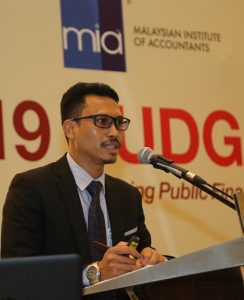Stamp Duty and RPGT. The Budget proposed new duty rates for the transfer of real property, stamp duty exemption on purchase of first residential homes, and stamp duty exemption on insurance policy and Takaful certificates with yearly premiums/contributions less than RM100 for a period of two years.
For real property gains tax (RPGT), it was proposed that the rates in the sixth and subsequent years of disposal be revised from 5% to 10% for companies; from 0% to 5% for non-citizens and non-permanent resident individuals; and that low-cost, medium low-cost and affordable residential homes priced at RM200,000 and below, be exempted from RPGT for Malaysian citizens.
Sales & Services Tax. One, the government has proposed to impose service tax on taxable services imported into Malaysia by businesses (B2B) and by consumers (B2C), to ensure equal treatment for services supplied by both local and foreign service providers. Two, the Budget also proposed the introduction of a credit system to ensure that registered manufacturers get the same treatment when buying from other registered manufacturers, to help reduce costs for small registered manufacturers and avoid double taxation. Three, the Budget proposed exempting selected services supplied to the same type of service provider who is registered, to avoid double taxation and to keep the local service industry competitive.
Excise Duty. The Budget imposed RM0.40 per litre on fruit and vegetable juices that contain or do not contain added sugar or other sweetening matter of 12g per 100ml or more. This includes carbonated drinks; the rationale behind this is to curb sugar consumption and the rising incidence of diabetes.
International Tax. It was proposed that some conditions pertaining to income tax and restrictions on transactions be abolished and new conditions imposed, in line with initiatives to promote long-term competitiveness of Labuan as an international financial hub, and ensure compliance with agreed international taxation standards.

Tax Incentives. Budget 2019 proposed several tax incentives. These include extending incentives for retail bonds and retail Sukuk for two years, to further encourage investment in the capital market. The Budget also proposed extending tax incentives for the issuance of Sukuk Ijarah and Wakalah.
In human capital, tax incentives were proposed for employers who employ senior citizens and ex-convicts. It was also proposed that employers who make PTPTN loan repayments on behalf of full-time employees be eligible for tax deduction on the repayment amount.
To encourage the growth of venture capital activities, it was proposed that the period of application for venture capital tax incentive be extended for another year.
Pioneer and Investment Tax Allowances that were unabsorbed after the end of the pioneer period were proposed to be carried forward for up to seven consecutive years, with the same for unabsorbed pioneer losses.
Under Review of Principal Hub Incentives, income tax at a 10% concession rate on statutory income relating to Principal Hub activities was proposed for a period of five years, to optimise returns on investment.
The proposal for Green Technology was divided into two parts: Assets and Plastics. Under Assets, it was proposed that the list of green assets which qualify for Green Technology Investment Allowance be expanded from nine to 40 assets.
Companies producing environmentally-friendly plastics may obtain Pioneer Status tax exemption for five years at 70% or Investment Tax Allowance of 60% for five years, in order to attract environmentally-friendly investment and to reduce the use of conventional plastic.
Industry4WRD. On 31 October 2018, the government launched the Industry4WRD Policy to be implemented between 2018 and 2025. Aimed primarily at the manufacturing and manufacturing-related services sector, this policy aims to spur strategic partnerships between manufacturing and related services in the AsiaPac region, making Malaysia the preferred destination for high-tech industries and investment, and providing solutions for advanced technology. The tax incentives for this sector covered Readiness Assessment (RA), the Vendor Development Programme and Human Capital Development.
The RA is the basis from which the intervention plan will be developed. For this, it was proposed that a tax deduction on this be allowed, up to RM27,000. Under the Vendor Development Programme, the proposal was for double deduction on operating expenditure up to RM1 million annually, for up to three years. For Human Capital Development, it was proposed that double deductions be allowed for companies giving scholarships to Malaysian students in vocational and technical studies, and diplomas in engineering and technology; for upgrading and developing employees’ technical skills in MIDA-approved programmes; for expenditure on internship programmes in selected fields approved by MOHR; and on relevant courses conducted by private institutions of higher learning.
Import Duty. The Budget proposed a review of the import duty rate on bicycles, to further support a healthy lifestyle by ensuring bicycles were more affordable. This will indirectly reduce carbon (emissions), especially in Kuala Lumpur.
Tourism. The imposition of a Departure Levy was proposed, at a rate of RM20 for outbound passengers to ASEAN countries, and RM40 for those departing for non-ASEAN countries. This new measure is slated for implementation on 1 June 2019.








